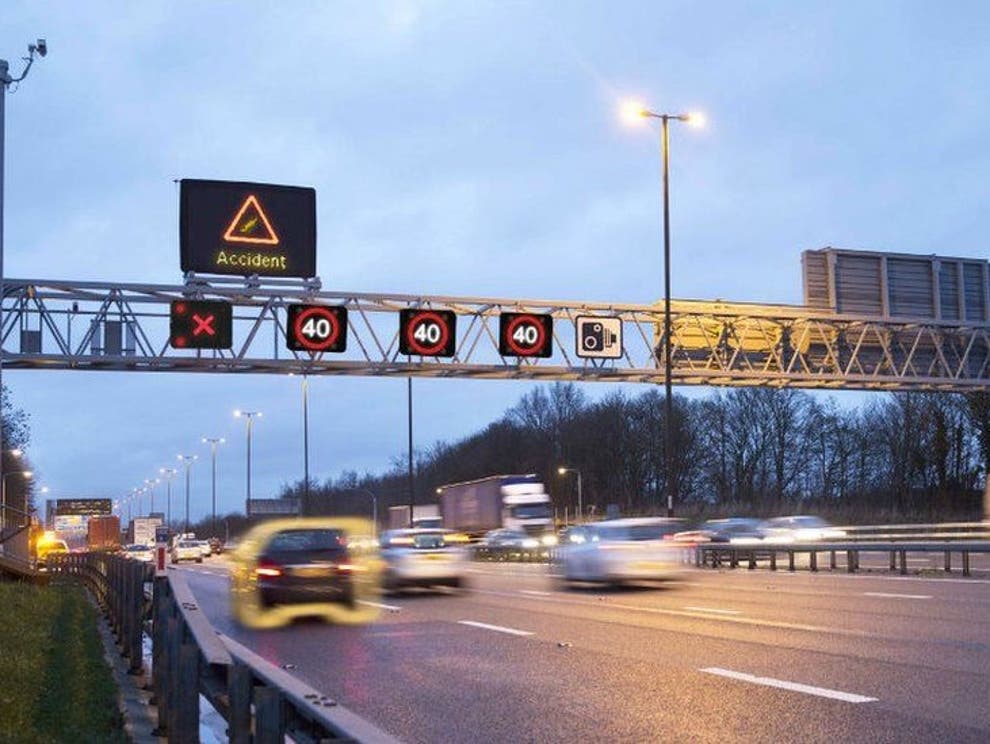Time for an orderly retreat from so-called smart motorways
Editorial: A new study suggests that getting rid of hard shoulders is dangerous – Grant Shapps, the transport secretary, should heed the warning signs

The evidence is contested, but taking away the hard shoulder on British motorways makes many people feel less safe. Public opinion is against “smart motorways” and the reassurances offered by the Highways Agency are not as categorical as they might be. The agency says that “in most ways, smart motorways are as safe as, or safer than, conventional ones”. That “in most ways” sounds somewhat equivocal.
Until there is conclusive evidence that they are “in all ways” as safe as conventional motorways, The Independent believes that hard shoulders should be restored and resources devoted to alternative means of traffic management. The marginal and possibly short-term improvement in journey times is not worth the perception of danger, let alone the actual risk of more injuries or deaths.
As we report today, a new study of “all lane running” – that is, motorways using the hard shoulder as a normal lane – suggests they are indeed more dangerous than conventional motorways. Defenders of smart motorways will point out that the survey was commissioned by Claire Mercer, a campaigner against them whose husband was killed on a stretch of the M1 without a hard shoulder, but that is not actually a refutation of the findings.
Until the findings are either refuted or confirmed, Grant Shapps, the transport secretary, would be wise to order a tactical retreat and start to reinstate hard shoulders. This should help to restore public confidence and buy time to begin tackling the underlying problem.
The fact is that pressure on the Highways Agency to introduce smart motorways comes from congestion, which is caused in turn by the misallocation of a scarce resource, namely road space. A quick fix at pinch points is to see the hard shoulder as a waste of a valuable resource and to make more intensive use of it. But that does not deal with the underlying pressure. The history of road-building is that bigger roads with more lanes can ease traffic flows in the short term, but usually end up generating additional traffic.
In that sense, using the hard shoulder as a live lane is simply a cheap way of increasing road capacity, having the same effect as building a wider road. It can only ever be a short-term solution in a situation in which the total quantity of traffic is continually increasing.
In theory, the best way to manage congestion is by road pricing. A crude scheme in London, the congestion charge, was successful in reducing traffic in the short term as well as in raising revenue. But in order to make the most efficient use of road space, a road-pricing scheme would need to adjust the price mechanism constantly by time of day and by specific stretches of road.
Read more:
The technology exists for it, and indeed such a scheme was designed by the last Labour government more than a decade ago, but it fell victim to two powerful forces. One was the resistance in a democracy to any change that creates winners and losers: a revenue-neutral road-pricing scheme would have created losers who would complain more loudly than the gainers would express their gratitude. The other was the civil liberties objections to tracking all vehicle movements at such a level of detail.
Now, however, all these arguments are being superseded by the emerging technology of driverless vehicles. We are on the verge of an entirely new model of traffic, in which by definition all vehicles are tracked, and in which traffic management and the maximisation of road space are intrinsic to the system.
Until we get there, however, it makes sense to wind back the smart motorway experiment, and to accept that people put a higher value on feeling safe than they do on cutting a few minutes from their journey time.
Join our commenting forum
Join thought-provoking conversations, follow other Independent readers and see their replies
Comments